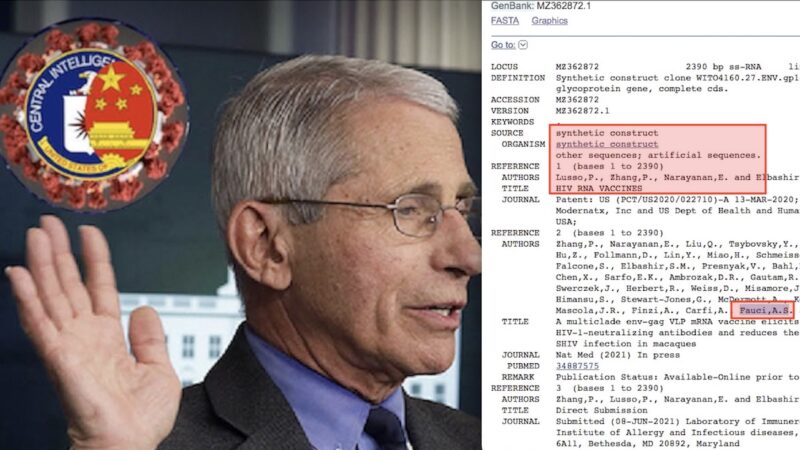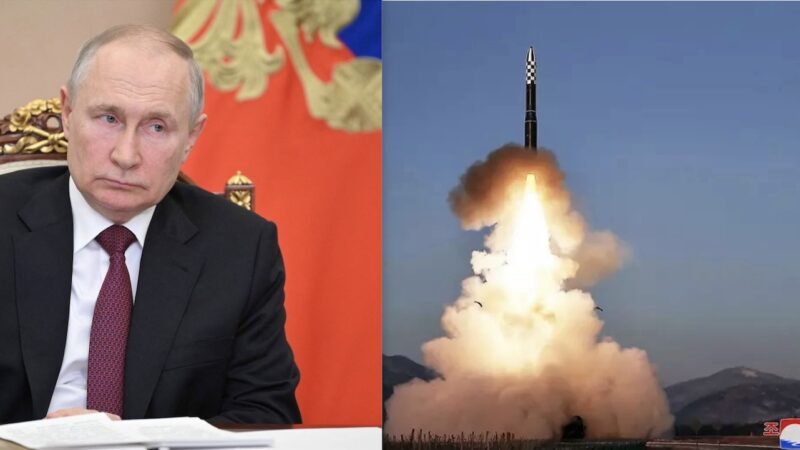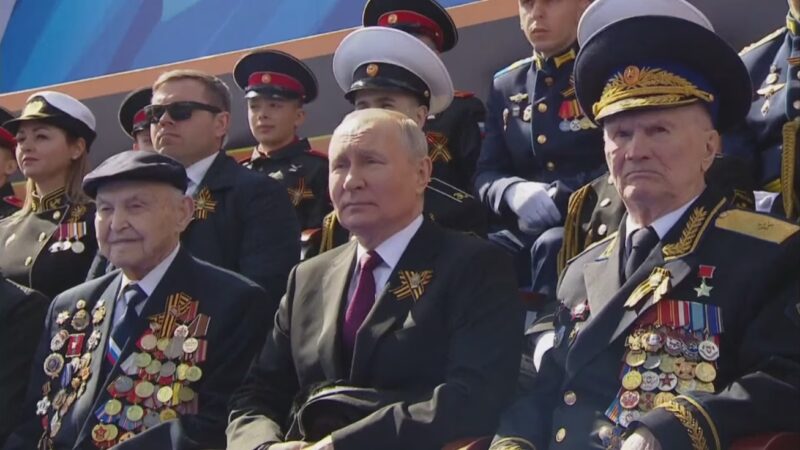Alternatives to the IMF and the Future of the Welfare State in Asia: Beyond the Blame Game between Superpowers

by Darini Rajasingham-Senanayake
Dr. Darini Rajasingham-Senanayake, is a Social and Medical Anthropologist, based in Colombo, Sri Lanka. All links to Gospa News articles have been added aftermath.
The economic proxy war between the rising and fading Superpowers is escalating and expanding in the “Asian 21stCentury.’ This was apparent in an (un)diplomatic exchange between Chinese and United States officials over the International Monetary Fund’s (IMF) debt restructuring delays in Sri Lanka which was the venue of the recent CARAT/ MAREX war games. These happened in the run up to the country’s February 4 commemoration of 75 years of ‘Lost Independence, Democracy and economic sovereignty’ as a commentator put it.
Before the MA-REX (King of the Ocean?) war games that saw the arrival of USS Anchorage of the Seventh Fleet with Poseidon (P-2), advanced ocean surveillance and attack aircraft, as well as, the Marines Jazz band serenading the natives of Paradise Lost, India’s Foreign Minister, Dr. Jaishankar paid a flying visit to the island which sits front and center of some of the busiest energy, trade and Submarine or Undersea Data Cable Routes in the world. India, the regional hegemon and good neighbor, had bailed out Sri Lanka to the tune of $4 billion ex-post its first ever sovereign Default in April last year.
The strategic island is a test case for 54 other Global South countries caught in post-Covid 19, Eurobond debt traps given an international development and financial architecture that no longer seems fit for purpose.
The end game of the current IMF Debt restructuring operation appears to be quite illogically enabling a country that had accumulated Odious Debt to the point of Default, to return to borrowing again from the same private capital markets that were the main source of its economic crisis. These bond traders charge predatory interest rates. Thus, it is increasingly apparent that long-term solutions and alternatives to the Washington Twins and the Colonial Club de Paris ‘Bailout Business” are needed for Sri Lanka to extricate herself from the clutches of Eurobond money lenders.
Civil society groups meanwhile have been discussing options including constitutional amendments to ban official borrowing from private capital markets by corrupt politicians and their Central Bank appointees who conveniently pass odious ISB debt to impoverished citizens– regardless of the outcome of IMF negotiations.
Simultaneously, there have been efforts to muddy the waters and miss-diagnose the causes of the crisis by various IMF experts who routinely call for structural adjustments, reforms, trade liberalization and privatization of public assets. They attribute the country’s first ever Sovereign Debt Default in April last year to its once envied Welfare State and a culture of government ‘hand-outs.’
Envy of the Developing World: Ceylon’s Welfare State
Dr. Amartya Sen, renowned economist and Nobel Laureate often cited Ceylon as a model of and for Third World development during the sixties and seventies. He showed that Sri Lanka (like India’s Kerala State), was a ‘outlier’ in World development as the island had excellent social and human development indicators, on par with many advanced industrial countries, despite low per capita GDP and growth. The country had high literacy rates, excellent healthcare, and later near gender parity in education for many decades of independence. It was hence too that the Prime Minister of Singapore, Lee Kwan Yew, had said that Singapore sought to emulate Sri Lanka at the time.
Dr. Sen throughout his long and distinguished career consistently challenged neo-liberal Growth Fetishism and advocated a ‘nuanced capabilities approach’ in development since there are no one size fits all solutions. Sri Lanka’s developmental Welfare State with a mixed-economy held the country in relatively good stead during 30 long years of often debilitating externally networked, Cold War linked, internal armed conflict. This enabled a quick bounce back once war with the Liberation Tigers (LTTE), ended in 2009.
Thus in 2019 the World Bank listed the strategic island as South Asia’s only Upper Middle Income Country (MIC), with the best human and social indicators in the region. However, that same MIC listing by the Washington Twin disabled the country’s access to concessionary borrowing that was needed after the mysterious Islamic State (IS) claimed Easter Sunday attacks on its tourism-dependent economy.
Being listed by the World Bank as an MIC forced the country to borrow at predatory interest rates from private market bond traders (ISB), which begs the question: was the strategic island pumped and dumped into a US dollar debt trap enabling Washington to make inroads, and if so, why now?
After all, Sri Lanka is a lush and fertile country with a geostrategic resource boon, though some call it a geostrategic resource curse. It is wealthy by most metrics-given mother nature’s largess, resources on land in the seas, or in terms of human and social capital, but now suffers from a US dollar debt trap.
As such, it is clear that the island’s first ever Sovereign Default was directly related to factors and events in recent global and local economic history, primarily:
1) increased private market borrowing from predatory hedge funds since 2015 by succeeding governments, and, 2) a series of exogenous economic Shocks that were administered in the past four years. These exogenous economic shocks include mysterious ISIS claimed terror attacks in 2019 that devastated the tourist-dependent economy, followed by two years of unnecessary, economically devastating Covid-19 Lockdowns that saw 40 percent of the national budget spent on purchase of ‘Vaccines’, endless PCR tests, and other health technology, followed by the Staged Default in April 2022 and an air-sea oil and gas blockade in June-July 2022 during the US marines ‘Sea Vision’ operation that brought the economy to a standstill. All these exogenous ‘events’ devastated the economy in the past 4 years sending the country into a Eurobond debt trap.
However, various economic experts and IMF ‘advisors’ have attempted to muddy the waters and causes for the current economic crisis and project way back into the past to blame the Welfare State and the island’s mixed economic development model for the current Debt Default. They claim that a purported lack of neoliberal ‘economic reforms’, trade liberalization and structural adjustments caused the default while referencing a no doubt increasingly bloated and corrupt state bureaucracy.
But to suggest that the solution to the problem of a bloated and corrupt state bureaucracy in some sectors is to de-structure and privatize the Welfare State, related infrastructure and services, which for decades made Ceylon / Sri Lanka the envy of the developing world is to throw the baby out with the bathwater! However, this is precisely what the opposition Samagi Janabalaya (SJB) economic dream team, that include, Dr. Harsha de Silva, Kabir Hashim and Eran WIckramaratne, who knew of and arguably benefited from the 2015 Central Bank Bondscams propose, quoting IMF advisors, Dr. Sharmini Cooray and Shanta Devaraja.
Economic reforms’, trade liberalization and structural adjustments have become code words for IMF austerity measures that shrink the economy of countries in debt traps, forcing privatization of the Welfare State and related services. The proposed IMF Firesale of State owned enterprises and related services including transport, energy, telecom infrastructure and the Ceylon Electricity Board to assuage ISBs, while using the Green Energy climate catastrophe narrative would certainly jeopardize national energy security among other things.
These same advisors repeat the mantra about the private sector being the ‘engine of growth’ and captains of industry, although it has been quite lacking in innovation and leveraging the island’s valuable minerals (including Graphite, Zircon, Titanium, Thorium, Phosphates), and marine, particularly, fisheries resources in the past five decades to diversify exports and markets through transfer of technology and value addition. In fact, the private sector has been a significant part of the problem of the USD debt trap problem due to illicit outflow of capital through transfer pricing and trade mis-invoicing, and there is no guarantee that privatization would reduce corruption!
In fact, the dichotomy between State and private sector–led growth is in the final analysis a red herring as both may be enablers or disablers of industrialization and leveraging of valuable living and non-living resources. Both state and private sector corruption were at the root of Sri Lanka’s Debt Default. In China the State leads, in the West Corporations lead development and innovation.
Role of the IMF and Development Models
The recent exchange between Chinese and United States officials over the International Monetary Fund’s (IMF), debt restructuring operations revealed the geopolitical standoff behind Sri Lanka’s first ever sovereign debt Default that was triggered by Eurobond lenders. High ranking US officials called out China for Sri Lanka’s economic woes in the run up to the February 4th tamasha to commemorate 75 years of ‘Lost Independence.’
Victoria Nuland, Under Secretary of State for Political Affairs, who was in Colombo on February 1 blamed China for the IMF’s Sri Lanka debt restructuring delay claiming, “What China has offered so far is not enough ….. We need to see credible and specific assurances that China will meet the IMF standard of debt relief”. In response, the Chinese Foreign Ministry Spokesperson, Ms. Nao Ning was equally blunt: “rather than point fingers at China’s close cooperation with Sri Lanka, the US might as well show some sincerity and actually do something to help Sri Lanka weather through the current difficulties” she said.
Nuland’s comment did not conceal the fact that the IMF is essentially Washington’s proxy in its on-going Economic War on China and the Belt and Road Initiative (BRI), for global connectivity. China, meanwhile has signaled that it will not bend to the increasingly obsolete Bretton Woods twins’ rules and debt restructuring standards in the “Asian 21stCentury”. Rather China affirmed that it would pursue bi-lateral engagement on debt restructuring with Sri Lanka while providing immediate relief with a moratorium on payments for two years. The Chinese authorities had separately sent a letter of support to the IMF.
The China-US stand-off distracted from big questions about Sri Lanka’s debt Data, which has become a numbers game, regarding the quantum of external and internal, dollar and non-dollar denominated debt to be restructured. Although debt restructuring in a small county like Sri Lanka, should be a fairly straight forward calculation, it has been turned into veritable ‘rocket science’ with a black hole of infinite regress.
The IMF’s ISB ‘Bailout Business’ is unduly complex, technical, and jargon filled, conceals more than it reveals; masks the opaque and un-transparent nature of private market International bond transactions (ISB), and vested interests in the OECD’s informal colonial Club de Paris and Washington Consensus with their gravy train of legal and accounting firms like Lazard, Clifford and Chance and various ‘advisors’ on board.
Amidst the geopolitical tensions, Debt Data gaming, and talk of ‘intercreditor compatibility treatment”, key information like the identities of the bond holders the quantum of funds held, how they were spent, as well as, the external causes and substantive solutions to Sri Lanka’s (and indeed the debt crisis affecting 54 other Global South countries), have been obscured. Parts of the IMF’s Debt Sustainability Analysis (DSA), that are available are also contested given clearly unrealistic assumptions and projections.
Statement of 182 Academics: It’s Geopolitics, Stupid!
Amid the propaganda and blame game between the US and China over the strategic Indian Ocean island’s first ever Sovereign Default last year, a statement signed by 182 international economists and academics provides some objectivity in support of citizens caught in debt traps Not of their making; ”Instead of geopolitical manoeuvring, all of Sri Lanka’s creditors must ensure debt cancellation sufficient to provide a way out of the current crisis” they state.
The statement by a constellation of distinguished intellectuals from across the ideological spectrum, include Jawahalal Nehru University’s Jayati Ghosh, Harvard’s Dani Rodick, former Greek Finance Minister, Yanis Varoufakis, Thomas Picketty the author of Capital, and points out that private market or Eurobond traders who are represented by the Paris Club own almost 40 percent of the island’s total dollar debt stock. Interest payments to these amount to more than 50 percent since they lend at predatory rates in Global South countries claiming high risk. Since these bond trading hedge funds make high rewards, once the risk matures should not these predatory hedge funds take their losses in so-called “frontier markets” rather than expecting the lender of last resorts to bail them out?
While China which is Sri Lanka’s largest bi-lateral creditor, holds about 15 percent of Sri Lanka’s total debt, the country’s first ever default was triggered and staged due to Eurobond debt in April last year (2022). The Hamilton Reserve Bank, a shadowy off-shore banking outfit in St. Kitts and Nevis had filed a case against Sri Lanka in the New York courts. BlackRock which got huge US government Covid-19 Bailout funds to asset strip around the world (during unnecessary World Health Organization Covid-19 lockdowns in 2020-21), partners with India’s troubled Adani corporation, and is Sri Lanka’s biggest ISB debt holder.
Alternatives to the IMF and its Shock Treatment
In the context China appears to be hedging its bets, playing for time and working with the BRICS while seeking reform of the highly inequitable, un-transparent and conflict-of-interest-ridden International Financial Architecture. Alternatives to return to borrowing from capital markets include de-dollarization, currency swaps and trading in a basket of currencies, joining the new regional development finance architecture and borrowing from the New Development Bank (NDB), or the Asia Infrastructure Investment Bank (AIIB), given an increasingly weaponized US dollar with high interest rates and US-EU sanctions on Russia, Iran, Venezuela etc.
Sourcing oil and gas, which is Sri Lanka’s biggest import expense from Russia at discount rates like India and paying with Rupee-Ruble exchanges or bartering Sri Lanka’s Green Gold (tea) for Russia’s Black Gold (oil), would certainly help get the island beyond the US dollar Eurobond debt trap once the data on Sri Lanka’s export –import expenditure data is clarified.
Simultaneously, diversifying export products and markets while leveraging Sri Lanka’s valuable rare earth minerals and extensive living and non-living marine resources though the transfer of technology and industrialization would enable growing the economy to escape the USD debt trap. Fisheries in the island’s rich and extensive maritime Exclusive Economic Zone is a low hanging fruit.
Finally, taxing Undersea Data Cable Companies that use Sri Lanka’s maritime Excusive Economic Zones, and their Big Data clients – Google, Apple, Facebook, Amazon, and Microsoft would be the icing on the cake of Sri Lanka’s great escape from Eurobond money lenders and their debt collectors!
In the final analysis the solution to the Eurobond debt trap is elementary dear Watson; simple and elegant to boot; definitely not rocket science! But we need to get beyond mind numbing columns of gamed data, numbers games, and IMF jargon about ‘extended fund facilities’, ‘intercreditor agreements’, “lending into Arrears’ etc. and above all not panic about Famine, or Covid, or Climate disaster Narratives, but rather, keep our cool!. Familiarity with Naomi Klein’s excellent “Shock Doctrine: The Rise of Disaster Capitalism’ is also useful.
by Darini Rajasingham-Senanayake
Dr. Darini Rajasingham-Senanayake is a social and medical anthropologist with research expertise in international development and political economic analysis. She was a member of the International Steering Group on “Southern Perspectives on Reform of the International Development Architecture”



